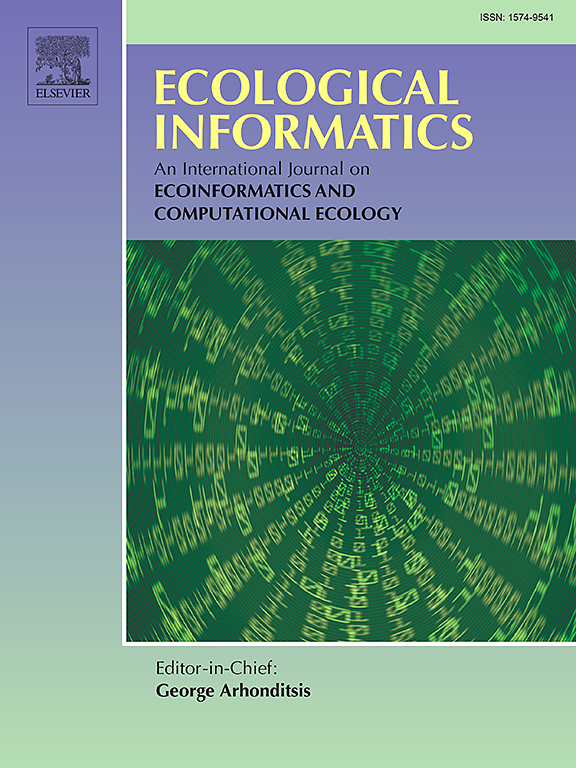Surveying the deep: A review of computer vision in the benthos
IF 5.8
2区 环境科学与生态学
Q1 ECOLOGY
引用次数: 0
Abstract
The analysis of image data for benthic biodiversity monitoring is now commonplace within the domain of marine ecology. Whilst advances in imaging technologies have allowed for the collection of vast quantities of data, the curation of this has traditionally been performed manually, resulting in a bottleneck whereby data is collected faster than it can be processed. Recent years have seen marine ecologists turn to the domain of computer vision to help automate this curation process. However, as the knowledge required to build such systems spans both domains, there is a high barrier to entry. To help reduce this barrier, this paper aims to provide an introduction to computer vision-based benthic biodiversity monitoring via a comprehensive literature review. To aid ecologists, key computer vision concepts are described and example use-cases highlighted. The major challenges inherent to benthic imagery for computer vision systems are explored, alongside a discussion of how current systems attempt to mitigate against these. To aid computer scientists wishing to enter the domain, an exploration of currently available open-source benthic datasets is also provided. Recommendations for future research are explored, including a move towards human-centric techniques, committing to ablation studies, reaching community agreement on open-source benchmarking datasets, and an increased use of innovative methods to allow for improved answering of key benthic ecology questions.
求助全文
约1分钟内获得全文
求助全文
来源期刊

Ecological Informatics
环境科学-生态学
CiteScore
8.30
自引率
11.80%
发文量
346
审稿时长
46 days
期刊介绍:
The journal Ecological Informatics is devoted to the publication of high quality, peer-reviewed articles on all aspects of computational ecology, data science and biogeography. The scope of the journal takes into account the data-intensive nature of ecology, the growing capacity of information technology to access, harness and leverage complex data as well as the critical need for informing sustainable management in view of global environmental and climate change.
The nature of the journal is interdisciplinary at the crossover between ecology and informatics. It focuses on novel concepts and techniques for image- and genome-based monitoring and interpretation, sensor- and multimedia-based data acquisition, internet-based data archiving and sharing, data assimilation, modelling and prediction of ecological data.
 求助内容:
求助内容: 应助结果提醒方式:
应助结果提醒方式:


